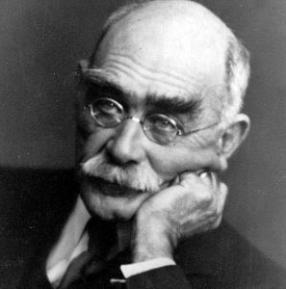Difference between revisions of "Rudyard Kipling"
(Created page with "{{person |wikipedia=https://en.wikipedia.org/wiki/Rudyard_Kipling |twitter= |image= |birth_date= |death_date= |constitutes=author, journalist, poet }} {{SMWDocs}} ==References...") |
m (enemy images) |
||
| (2 intermediate revisions by 2 users not shown) | |||
| Line 1: | Line 1: | ||
{{person | {{person | ||
|wikipedia=https://en.wikipedia.org/wiki/Rudyard_Kipling | |wikipedia=https://en.wikipedia.org/wiki/Rudyard_Kipling | ||
| − | | | + | |amazon=https://www.amazon.com/Rudyard-Kipling/e/B000APYRB8/ |
| − | |image= | + | |image=Rudyard Kipling.jpg |
| − | |birth_date= | + | |birth_date=30 December 1865 |
| − | |death_date= | + | |death_date=18 January 1936 |
|constitutes=author, journalist, poet | |constitutes=author, journalist, poet | ||
| + | |spouses=Caroline Starr Balestier | ||
| + | |birth_name=Joseph Rudyard Kipling | ||
| + | |birth_place=Bombay, Bombay Presidency, British India | ||
| + | |death_place=London, England | ||
| + | |nationality=British | ||
| + | |children=3, including, Elsie Bambridge, John Kipling | ||
| + | |employment= | ||
}} | }} | ||
| + | '''Joseph Rudyard Kipling''' was an English novelist, short-story writer, poet, and journalist. Born in [[British India]], which inspired much of his work, he was one of the foremost [[propagandist]]s for the objectives of the [[British Empire]]. | ||
| + | |||
| + | ==Creating enemy images== | ||
| + | His novel [[Kim]], published serially from December 1900 to October 1901, unfolds against the backdrop of [[the Great Game]], a political conflict between [[Russia]] and [[Britain]] in [[Central Asia]]. The novel popularized the phrase and idea of there in fact being a Great Game,<ref>Seymour Becker, "The ‘great game’: The history of an evocative phrase." Asian Affairs 43.1 (2012): 61-80.</ref> a concept which served to justify British offensive objectives in [[Central Asia]]. | ||
| + | |||
| + | By 1902, Kipling had switched focus. In a [[1902]] poem, ''The Rowers'', Kipling attacked the [[Wilhelm II|German Kaiser]] as a threat to Britain and made the first use of the term "Hun" as an anti-German insult, using Wilhelm's own words and the actions of German troops in [[China]] to portray Germans as essentially barbarian.<ref>Gilmour, David (2003). ''The Long Recessional: The Imperial Life of Rudyard Kipling'', page 206</ref> | ||
| + | |||
{{SMWDocs}} | {{SMWDocs}} | ||
==References== | ==References== | ||
{{reflist}} | {{reflist}} | ||
{{Stub}} | {{Stub}} | ||
Latest revision as of 05:39, 29 November 2023
(author, journalist, poet) | |
|---|---|
 | |
| Born | Joseph Rudyard Kipling 30 December 1865 Bombay, Bombay Presidency, British India |
| Died | 18 January 1936 (Age 70) London, England |
| Nationality | British |
| Children | • 3 • including • Elsie Bambridge • John Kipling |
| Spouse | Caroline Starr Balestier |
Joseph Rudyard Kipling was an English novelist, short-story writer, poet, and journalist. Born in British India, which inspired much of his work, he was one of the foremost propagandists for the objectives of the British Empire.
Contents
Creating enemy images
His novel Kim, published serially from December 1900 to October 1901, unfolds against the backdrop of the Great Game, a political conflict between Russia and Britain in Central Asia. The novel popularized the phrase and idea of there in fact being a Great Game,[1] a concept which served to justify British offensive objectives in Central Asia.
By 1902, Kipling had switched focus. In a 1902 poem, The Rowers, Kipling attacked the German Kaiser as a threat to Britain and made the first use of the term "Hun" as an anti-German insult, using Wilhelm's own words and the actions of German troops in China to portray Germans as essentially barbarian.[2]
A Document by Rudyard Kipling
| Title | Document type | Publication date | Subject(s) | Description |
|---|---|---|---|---|
| Authors' Declaration of September 1914 | manifesto | September 1914 | WW1 | An declaration in support of World War 1 by 53 leading British authors. One of the earliest efforts of the nascent War Propaganda Bureau to craft a coherent intellectual message in support of the war effort. |
A Quote by Rudyard Kipling
| Page | Quote | Date |
|---|---|---|
| Document:Ellwood vs Ellwood | “Pagett, MP, was a liar, and a fluent liar therewith –
He spoke of the heat of India as the ‘Asian Solar Myth’; Came on a four months’ visit, to ‘study the East,’ in November, And I got him to sign an agreement vowing to stay till September. And I laughed as I drove from the station, but the mirth died out on my lips As I thought of the fools like Pagett who write of their ‘Eastern trips’, And the sneers of the travelled idiots who duly misgovern the land, And I prayed to the Lord to deliver another one into my hand.” | 1889 |